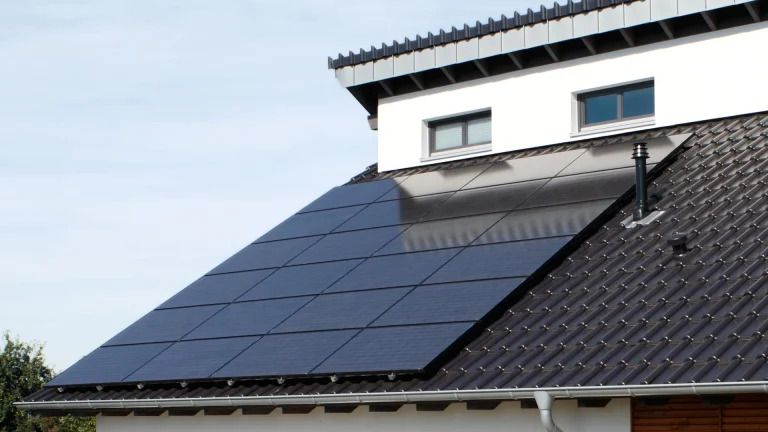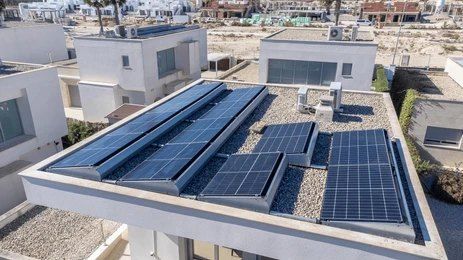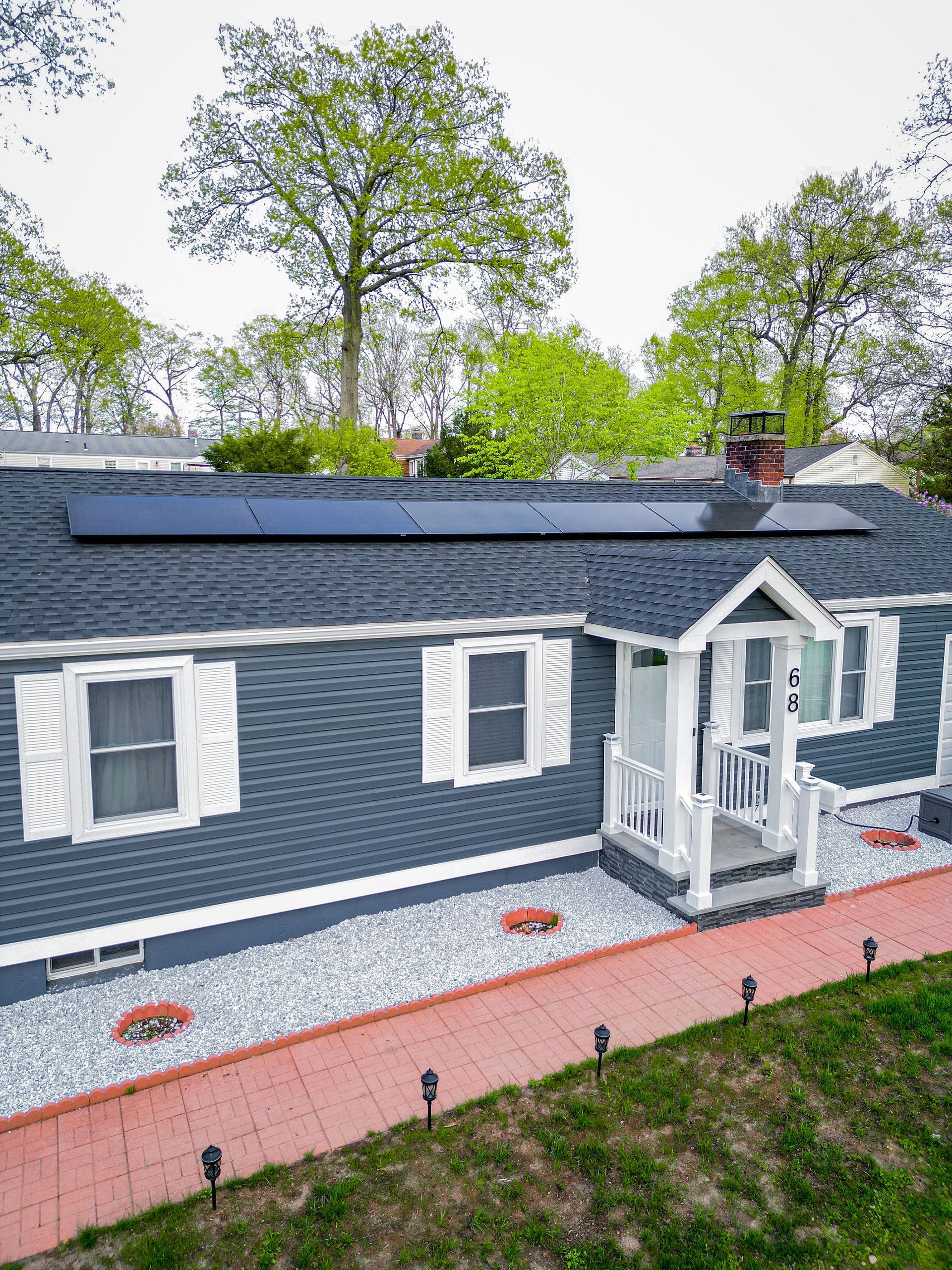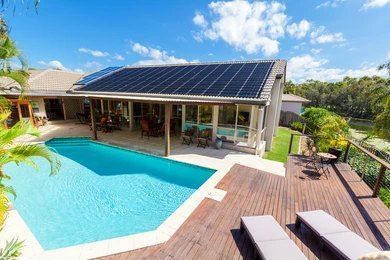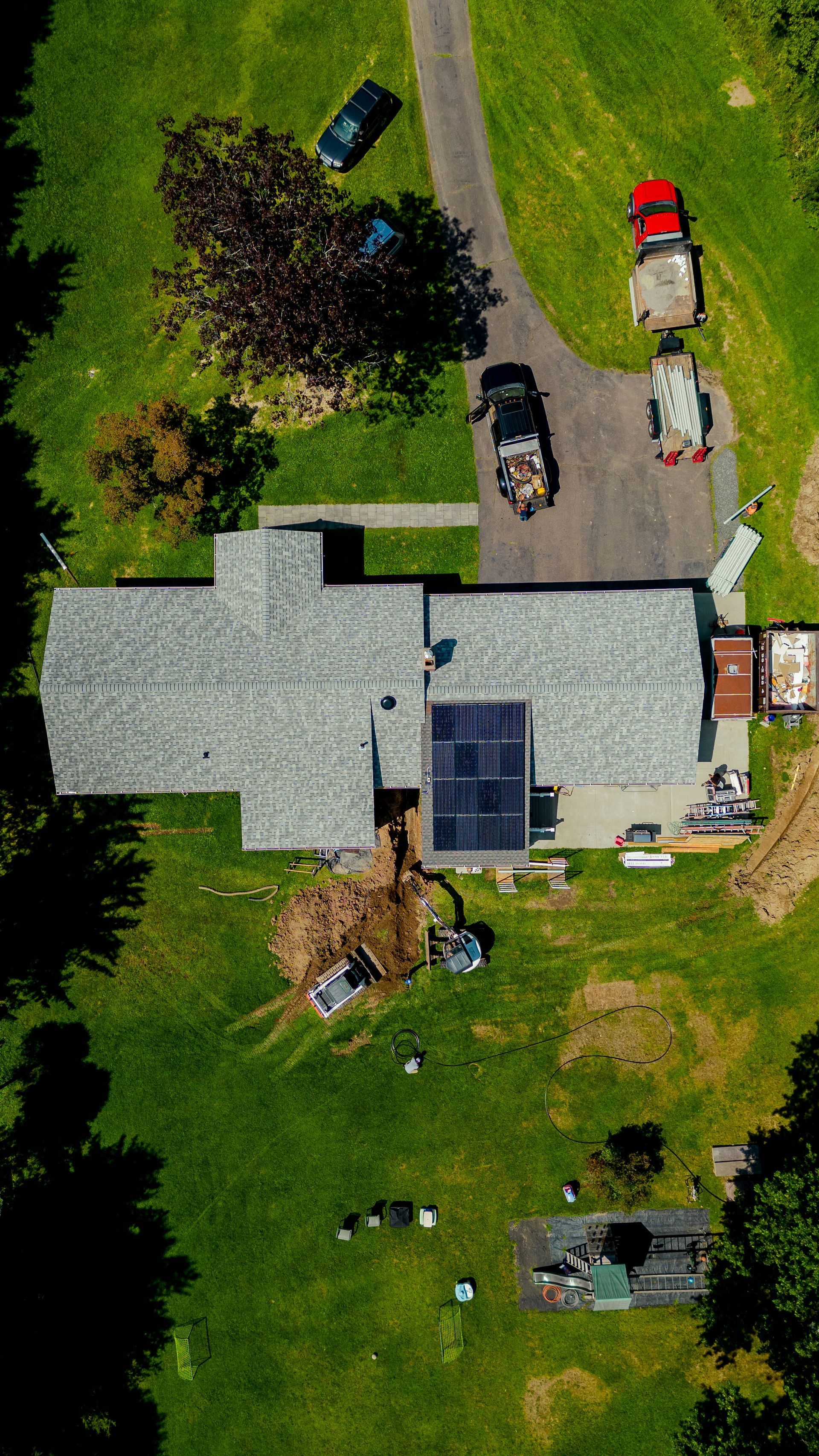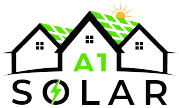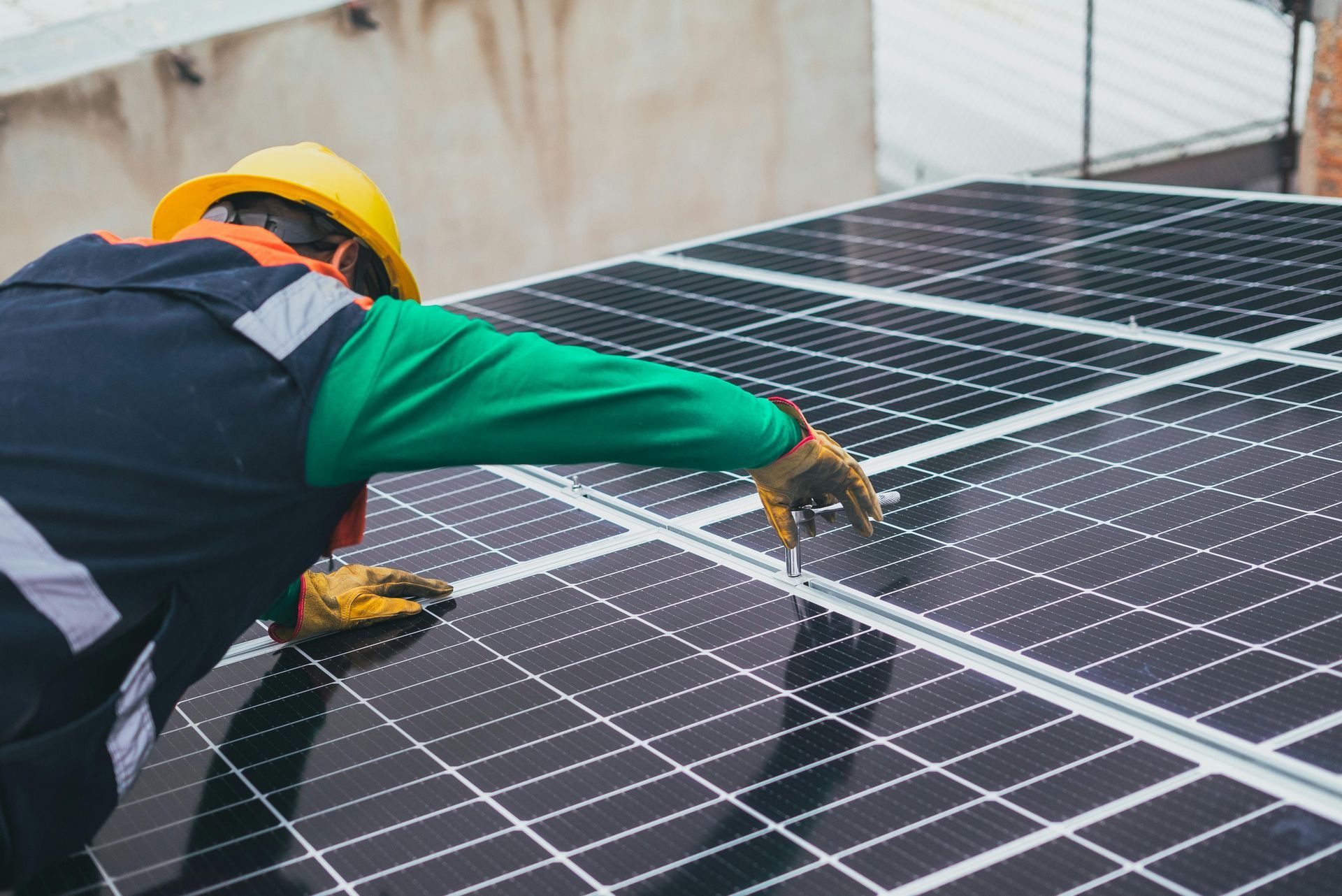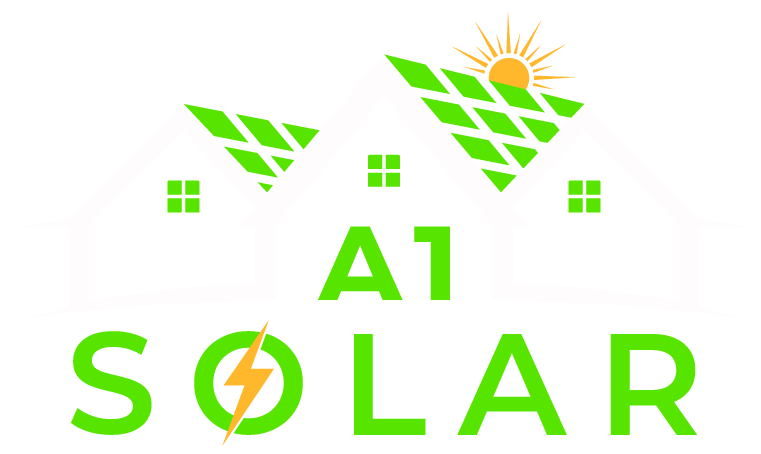How Much Does Solar Panel Installation Cost in Connecticut?
If you're seriously considering switching to solar, chances are you're asking the one question that really matters: How much is solar panel installation going to cost me?
We’ll cut to the chase. There’s no one-size-fits-all number, but we can give you a clear, no-nonsense breakdown of what affects the price, what you can expect to pay for a residential solar installation, and how to make it more affordable with smart financing.
What’s the Average Solar Panel Installation Cost?
In the U.S., the average residential solar installation costs between $15,000 and $30,000 before incentives. That price range includes equipment, labor, permitting, and other soft costs.
Here’s the thing, though: averages don’t tell the full story. A small, energy-efficient home might only need a 4kW system, while a larger household running AC all summer might need 12kW or more. System size drives the cost. More panels, more money.
Here’s a rough guide based on system size before tax credits:
- 4kW system: $10,000–$14,000
- 6kW system: $16,000–$20,000
- 8kW system: $22,000–$26,000
- 10kW system: $27,000–$32,000
These figures assume a standard roof mount and good sun exposure. Things like shade, roof complexity, or ground mounting can bump up the price.
What’s Included in That Cost?
When people hear “solar panel cost,” they often think of just the panels. But the full installation cost includes a lot more:
- Solar panels – The visible part of your system, but just one component.
- Inverters – Converts DC energy into usable AC for your home.
- Mounting and racking hardware – Secures everything to your roof.
- Wiring and electrical work – Done by certified electricians.
- Permits and inspections – Required by local jurisdictions.
- Interconnection applications – Required by utilities.
- Labor – Experienced installers get it done safely and efficiently.
- Monitoring systems – Optional, but increasingly common.
When you get a quote from A1 Solar Pros, you’re getting a turnkey system. No surprise fees. No upsells. Just straight numbers and clear expectations.
What About Solar Financing Options?
Not everyone can drop $15k to $25k out of pocket—and you don’t have to. Here are the three main solar financing options most homeowners choose:
1. Cash Purchase
This gives you the highest long-term savings because you avoid loan interest or lease fees. You own the system outright and may be eligible to get the full tax credit. If you can swing it, this is the best deal overall.
2. Solar Loan
Think of this like financing a car. You make monthly payments over time (usually 10 to 25 years), and in most cases, your loan payment replaces your utility bill. You still get the tax credit, and you own the system once the loan’s paid off.
Loan rates vary, with many different options, often lower than credit card or HELOC interest rates. A1 Solar Pros partners with vetted lenders who specialize in solar, so we can walk you through real numbers, not salesy hypotheticals.
3. Solar Lease or Power Purchase Agreement (PPA)
With a lease or PPA, you don’t own the system. A third-party company installs it, and you either pay a fixed lease amount or buy the power it generates. The upside? Zero upfront cost and maintenance the responsibility of the third party owner. The downside? No tax credit, and long-term savings may be smaller.
This option makes sense if you want solar but can’t qualify for a loan or don’t want the responsibility of ownership.
What Impacts Your Solar Installation Cost?
Here’s what we look at when building a quote:
- Your energy usage – The more electricity you use, the more solar you’ll need.
- Roof orientation and tilt – South-facing roofs perform best.
- Shading – Trees or nearby buildings can lower output.
- Roof type and condition – Tile or complex roofs cost more to install on.
- Location – Labor costs and permit fees vary by city and state.
- Incentives – Incentives vary according to multiple factors.
This is why generic online calculators can be misleading. Two houses on the same street can have very different solar needs and costs.
So, Is Solar Worth It?
If your home gets decent sunlight and your energy bills are more than $75 a month, a well designed solar system pays for itself in 6 to 8 years. After that, you’re generating electricity for the life of the system, which is typically 25+ years.
What’s Next?
If you’re serious about going solar, the best next step is a custom design and quote. It doesn’t cost anything, and you’ll get real numbers based on your roof, your energy use, and your goals.
At A1 Solar Pros, we don’t do pressure. Just answers.
Get your free estimate now
and see how solar can work for you.
